- Home
- slideshows
- miscellaneous
- Prostitution is legal in countries across Europe, but it's nothing like what you think
Prostitution is legal in countries across Europe, but it's nothing like what you think
While laws vary, Europe has a more permissive attitude towards prostitution than in the US. In Germany, Switzerland, Austria, Greece, Turkey, the Netherlands, Hungary, and Latvia, prostitution is legal and regulated. In other countries, it is legal but not regulated.

For most Americans, prostitution in Europe likely calls to mind Amsterdam's red-light district. In 2000, the Netherlands was one of the first countries to legalize and regulate prostitution ...
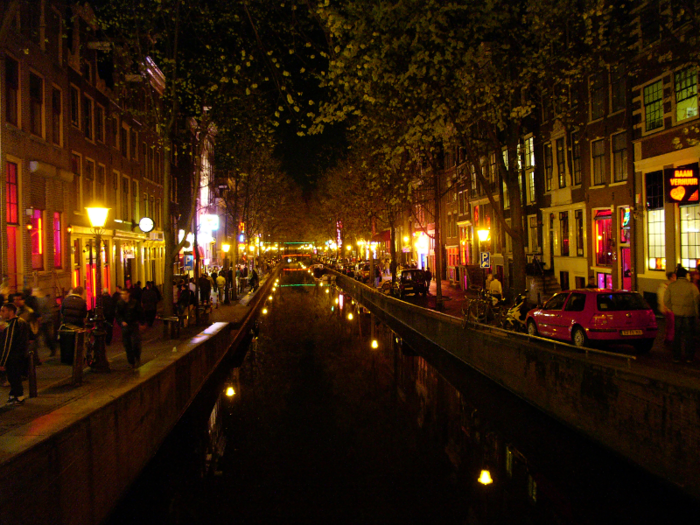
... leading to scenes like this in Amsterdam's famous De Wallen district, a neighborhood famous for marijuana coffee shops and sex-worker windows, where prostitutes try to solicit customers for a 30-minute soiree.
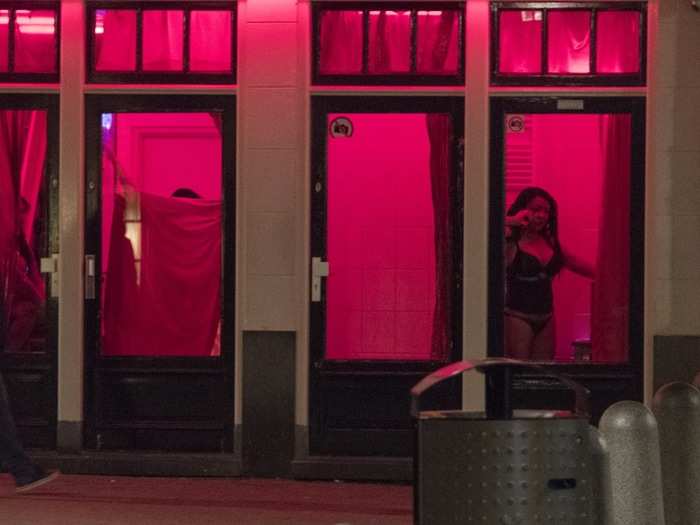
Though the Netherlands began regulating prostitution in 2000, the sex trade was more or less tolerated for decades before. The idea behind legalizing the trade was that it would it would root out organized crime, limit human trafficking, improve worker access to healthcare, and make sex work safer.

Source: The Independent
While prostitution has been legal in Switzerland since 1942 and is protected by the constitution, Petit Fleur, the first legal brothel, didn't open until 1998. Typically, sex workers work in a brothel or buy a daily "ticket" to sell sex in designated street areas.
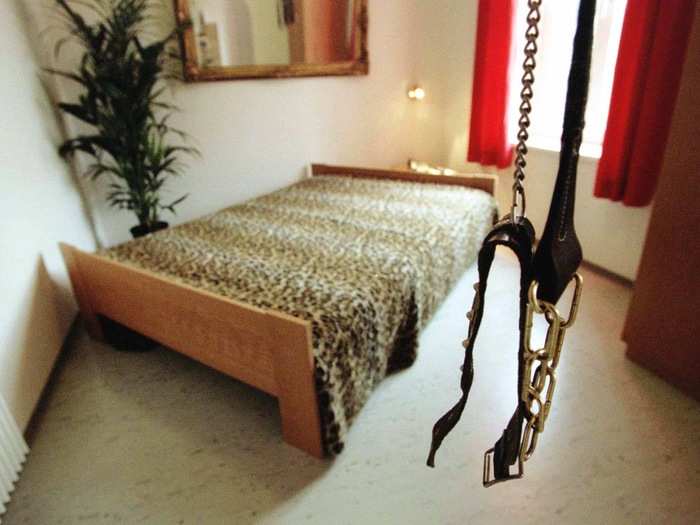
Europe's 'biggest brothel' is Germany. While sex work was tolerated as early as the 1800s, the government formally legalized it in 2002. The trade has since exploded into a $16.3 billion a year business with as many as over 1 million sex workers.
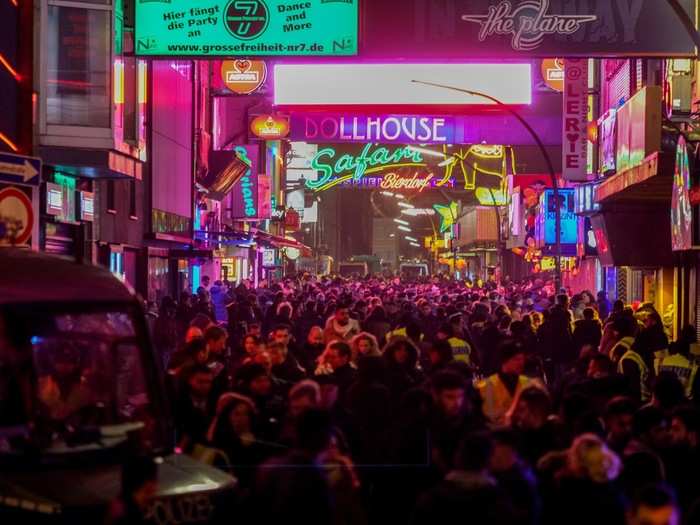
Reeperbahn in Hamburg, Germany has long been one of the world's most famous red-light districts. In its 1980s heyday, it was home to over 1,000 prostitutes, but in recent years, the area has become better known cheap bars and binge drinking.
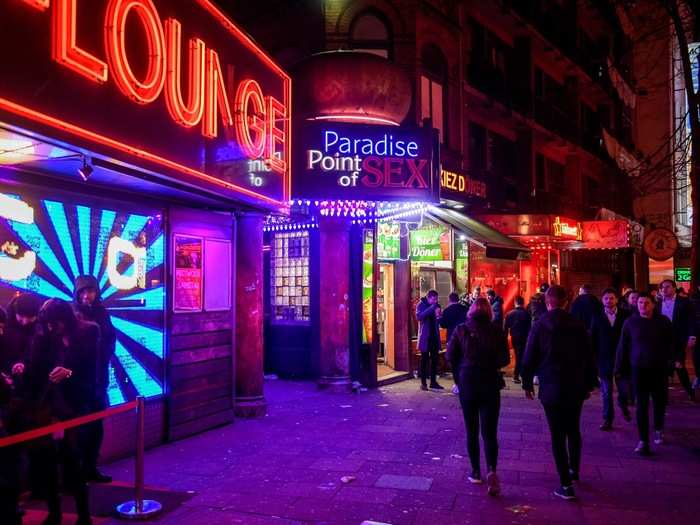
Source: The Independent
Hamburg's main sex-trade street is blocked by 12-foot high barricades on either end, and men under eighteen and women are prohibited from entering. The barricades are a major point of contention for feminist activists, who frequently demonstrate nearby.
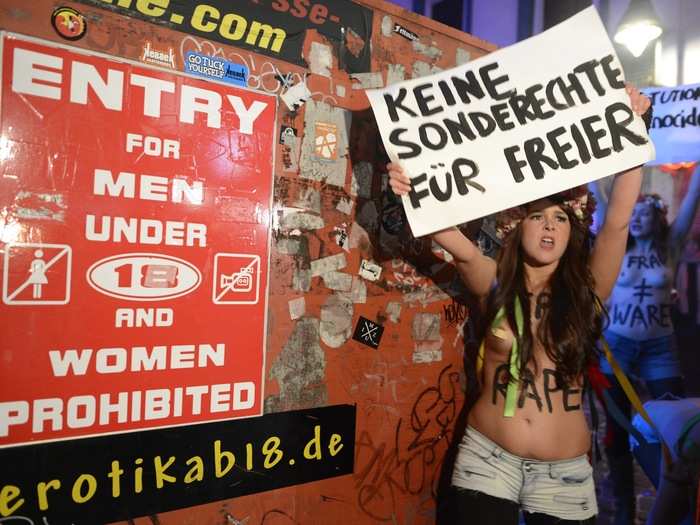
Source: The Independent
German red-light districts like Reeperbahn are typically populated by 'eros centers,' where women can rent one-room apartments for $90 to $160 a day. The women then sell to customers at prices they negotiate directly. The brothel takes only the room rental fee.

Source: The Independent
The oldest brothel in Hamburg is Hotel Luxor, which opened over 60 years ago. In 2008, Waltraud Mehrer, the Luxor's "madame," closed the brothel due to declining business. "Yes, many people see our closing as a sad development," she told The Independent, "But you can't make money by offering real sex on the Reeperbahn any more."
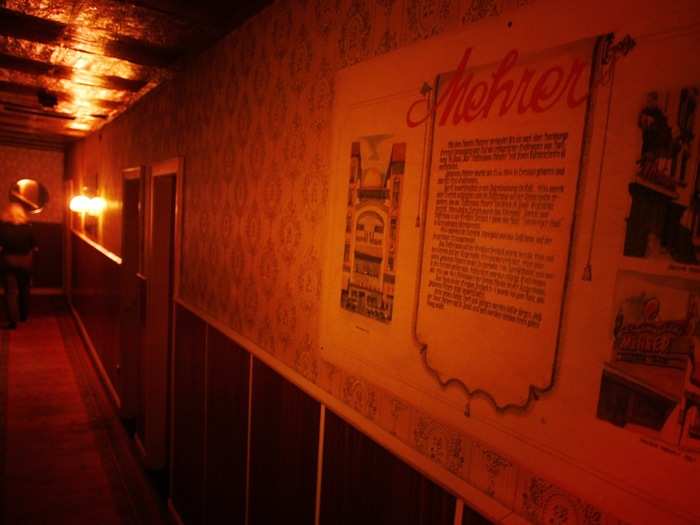
Source: The Independent
One of the largest 'eros centers' is Pascha, a 12-story brothel-nightclub in Cologne, Germany.
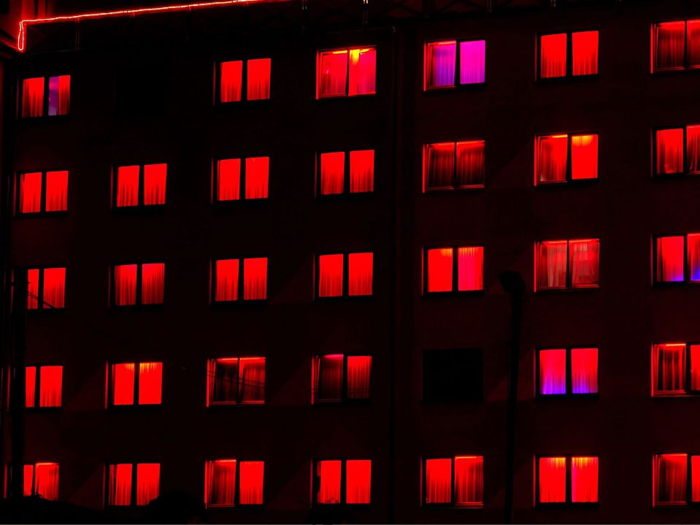
Pascha makes money by charging women $195 a day for a room. Typically, a woman has to sleep with four men to break even. Pascha has hair, tanning, and nail salons, a restaurant, and a boutique for the women.

Source: The Telegraph
Pascha is run by Hermann Mueller, whose father opened the brothel. Mueller told The Telegraph in 2014 that his girlfriend of several years is a prostitute. Her profession doesn't bother him. “Well, if you work in this industry for so many years, prostitution becomes like a regular job," he said.
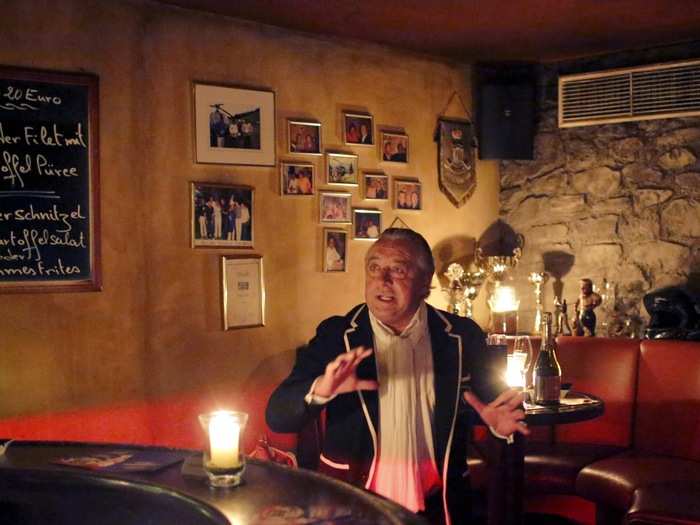
Source: The Telegraph
Legalized prostitution has spawned even bigger ventures than Pascha, like Paradise, a chain of five brothels across Germany, with more on the way. In 2014, Paradise opened a 15,000 square foot, $5 million brothel near the French border.
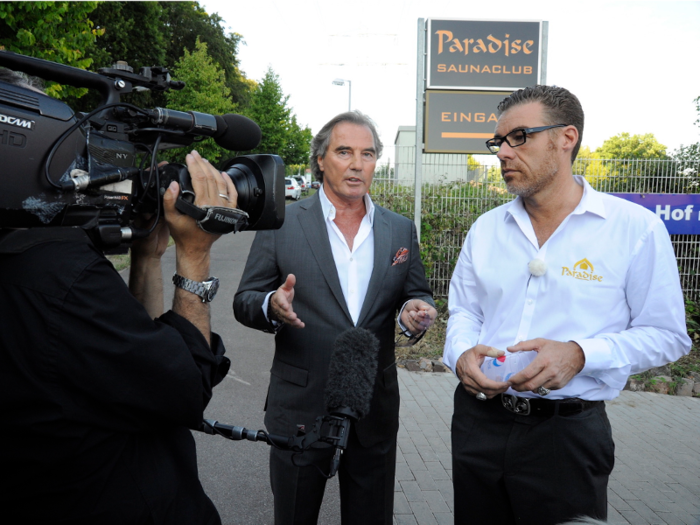
Source: The Telegraph
Not everyone is happy about the increased sex trade. In Saarbrücken, Germany, many locals protested the opening of Paradise. Mayor Charlotte Britz told The Telegraph in 2014 that "Prostitution has reached intolerable levels" in Saarbrücken.
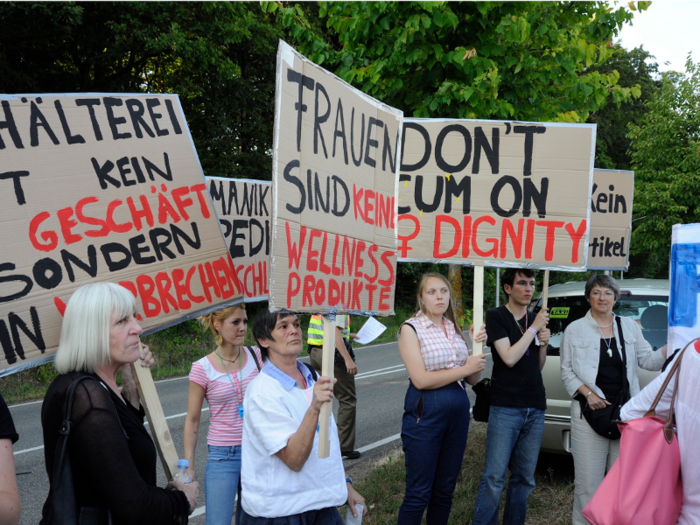
Source: The Telegraph
All entrants to Paradise — both sex workers and customers — pay an $89 entrance fee. From there, anyone can use the facilities, which include saunas, a movie theater, a restaurant, and rooms. Sex workers negotiate directly with customers. The going-rate for 30 minutes is about $56.
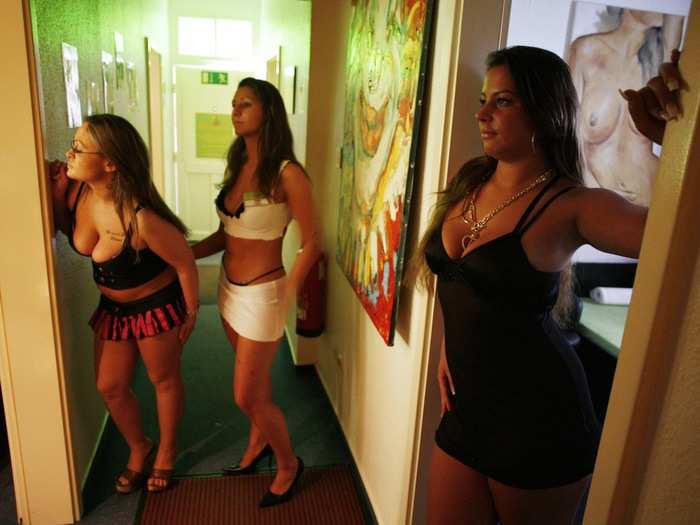
Source: The Telegraph
Most sex workers, whether in Germany, the Netherlands, or Greece, tend to come from Eastern European countries like Romania or Bulgaria, according to Public Radio International. Many are coerced or trafficked.

Source: PRI
Not every customer wants sex. One worker (not pictured) told The Telegraph that she's had customers that want to be walked on a leash "like a doggy," while others only want to tell her stories about their childhood. "You know, you must be like a gum — malleable. Become whatever they need," she said.

Source: The Telegraph
While the sex trade has encouraged "sex tourists" from the UK, France, and the US to visit, many customers are locals that have been going for years. A man named Michael told Reuters he'd been going since he was 13 and had a favorite sex worker he frequented.
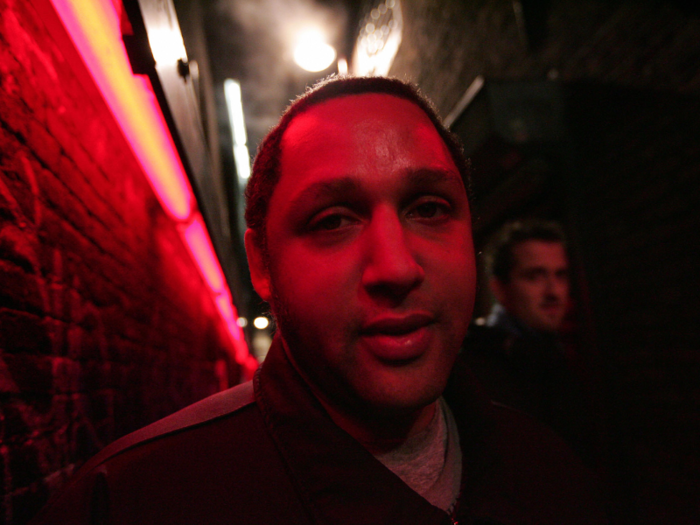
Like any other industry, it fluctuates with the economy. In 2006, with Germany seeing a flood of tourists for the World Cup, many brothels saw a boom in business. After the financial crisis in 2009, business tanked.

In Greece, the economy has been so bad that it has pushed more women into the sex trade, with Athens seeing a 7% increase in sex workers since 2012, even as the price for sex has dropped.

Source: New York Times
One researcher found that the price for a prostitute had dropped from $41 in 2012 to $20 in 2017.

Source: New York Times
Switzerland and Germany have both pioneered so-called "sex boxes" to eliminate street solicitation. In 2012, the Swiss government spent $2 million to build a facility where sex workers pay a daily fee to work the facility. Customers drive in, negotiate with a worker, park in a box, and then do their thing,

Source: USAToday
The facility includes security and on-site social services and is open at 7 p.m. until late in the night. A city spokesperson told USAToday that the facility has been effective at stopping violence against sex workers and reducing human trafficking.
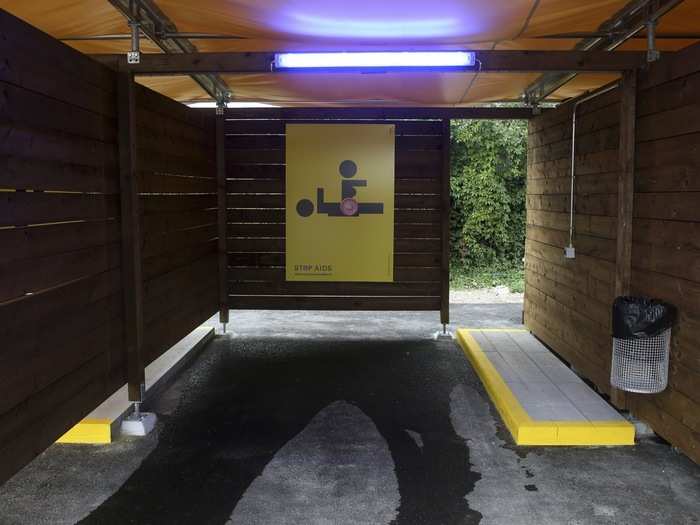
Source: USAToday
The industry has developed its own mini-celebrities over the years. Molly Luft, who passed away in 2010, was once considered Germany's most famous prostitute. She regularly appeared on talk shows and even had her own late-night show at one point.

Source: BZ Berlin
Meanwhile, Martine and Louise Fokkens at 70 years old are considered Amsterdam's oldest prostitutes. They have worked the De Wallen district for fifty years and written books about their experience.
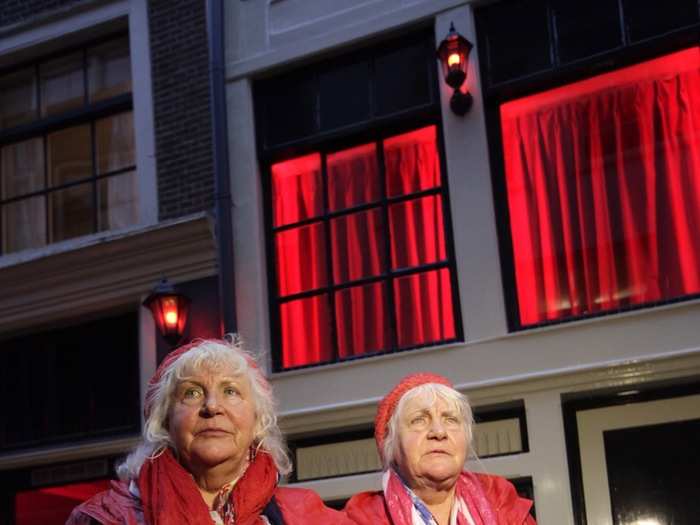
Some cities even have holidays to celebrate their red-light district. Each summer Frankfurt hosts "Bahnhofsviertelnacht" or "Train Station Quarter Night", a festival that runs through the city's famous red-light district.

Amsterdam even has a Museum of Prostitution celebrating the city's history of the sex trade ...
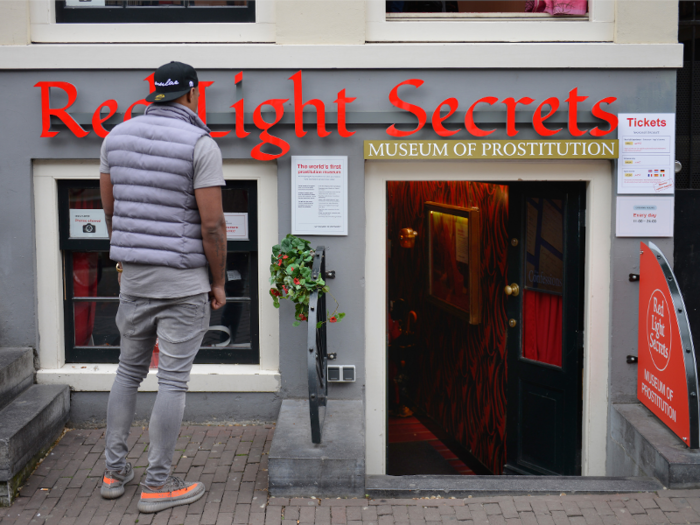
... where you can see a what a typical sex room would look like.
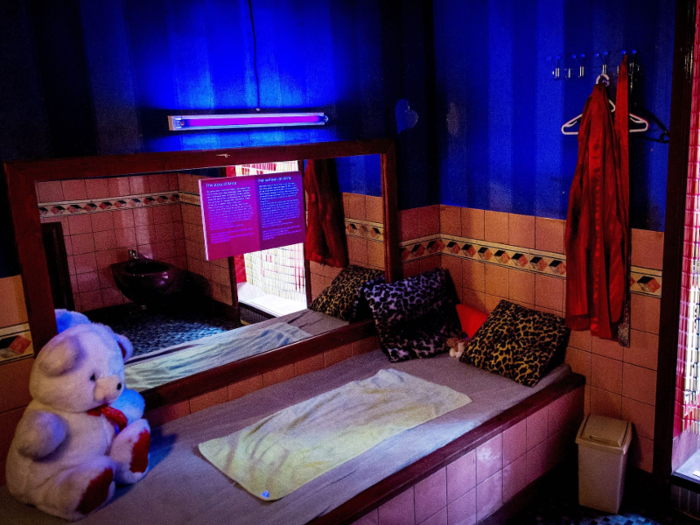
Despite Switzerland's successes with the "sex box" experiment, many are starting to consider sex work legalization to be a failure in the Netherlands and Germany. Despite hopes that legalization would bring sex work out of the dark, little about the industry is in the open.
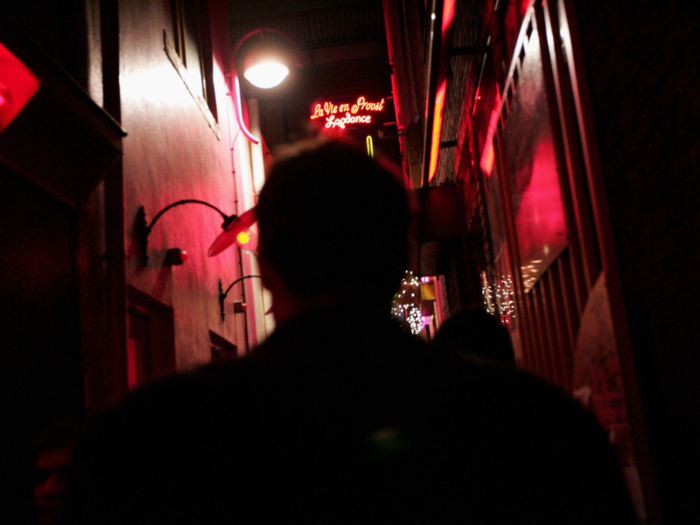
Source: DW
Only 76 women have taken advantage of laws that would allow them to get social security. Many hoped a 2017 reform law would improve regulation, but it seems to have done little. In Hamburg, about 600 sex workers registered with police as required, but some social services believe there are as many as 6,000 sex workers in the city.

Source: DW
Because many sex workers are foreigners and only come for a few months, they see no benefit in registering. They don't want to pay taxes or be branded as sex workers.

Source: The Telegraph
“A lot of people just do it for a short period in their lives. They don’t want to have in their CV, 'I was a whore from 2007 to 2009,'" a spokeswoman for Germany's Trade Association for Erotic and Sexual Services (not pictured) told The Telegraph.
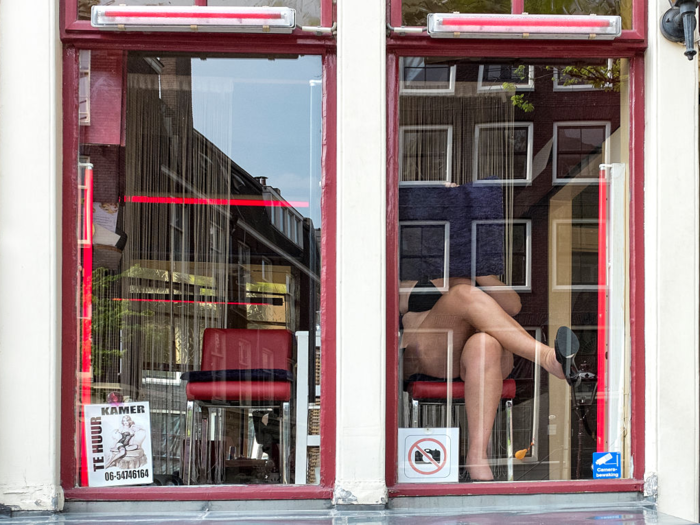
Source: The Telegraph
A bigger issue is that many activists say they've seen an increase in human trafficking since the sex trade was legalized. The vast majority of human trafficking is for forced prostitution, and Germany and the Netherlands are among the worst offenders. Raids on red-light establishments are frequent, but human trafficking is difficult to prosecute.

Source: The Telegraph
A European Union-funded report found that over 23,000 people were trafficked from 2008 to 2010. Activists say legal sex work makes it easier for traffickers to have coerced trafficked workers in plain sight. Sometimes, workers come willingly, lured by profit, but find working conditions to be abysmal.

Some sex workers argue that the solution is not to a ban, but better legislation. "Sex work is constantly conflated with human trafficking," Velvet December (not pictured), an activist for Proud, a sex worker-led organization based in Amsterdam, told Foreign Policy. “This ... leaves no room for the realities we face and to address the problems we see."

Source: Foreign Policy
Amsterdam's mayor, Femke Halsema (not pictured), has called for changes, saying that the industry is "increasingly linked to the humiliation of women by large groups of tourists." Halsema seemed to be referring to tourists who only come to take selfies of the women, often against their will.

Source: Sputnik News
There are many feminist activist groups throughout Europe that are outright against any kind of legal prostitution and are trying to ban it. Sabine Constabel, the leader of Sisters, a group that helps women leave the sex trade, considers any kind of sex work to be rape.
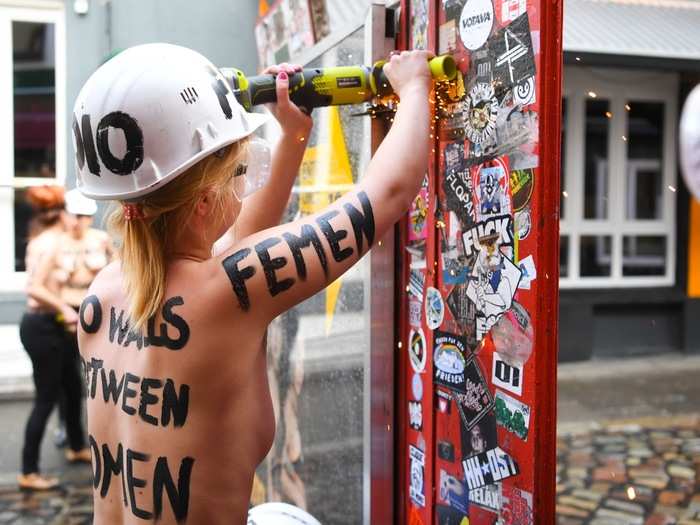
Source: DW
There has been a growing movement for countries to adopt Sweden's model, where it is legal to sell sex, but not to buy it. Customers get slapped with hefty fines. Some activists believe eliminating demand would curb sex trafficking.
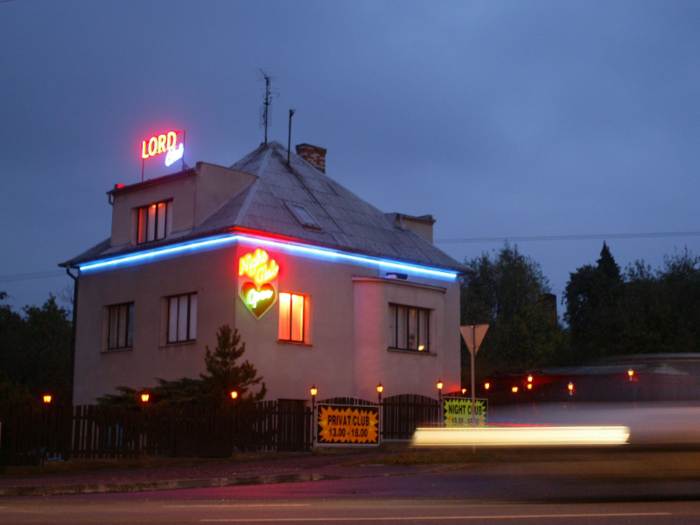
Source: BBC
But given the history in the Netherlands and Germany, it is unlikely such a measure would get through. Previous attempts to curb the sex trade there sparked backlash. A more likely reform is to criminalize people that pay for sex with a trafficked or coerced worker.
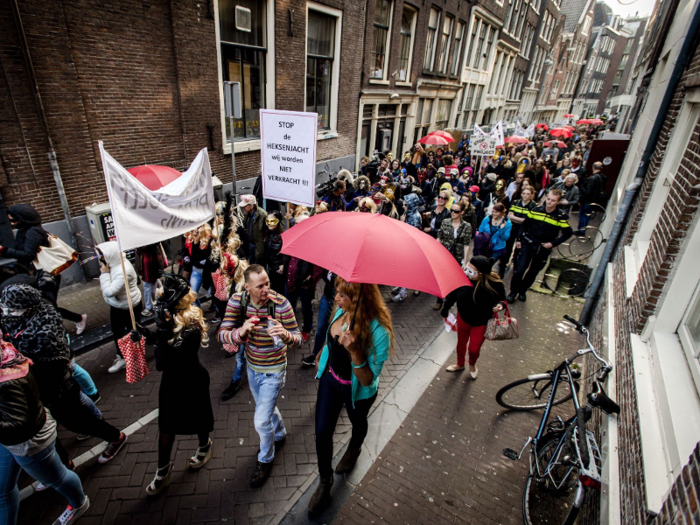
Source: The Independent
Popular Right Now
Popular Keywords
Advertisement